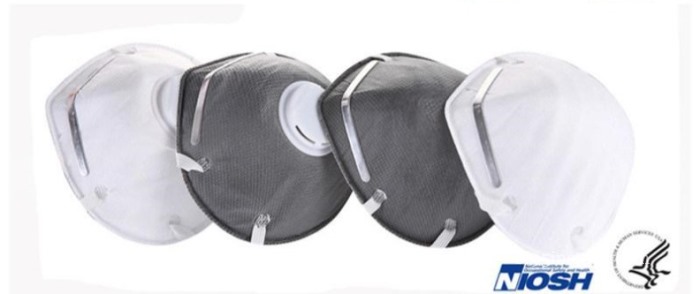Passengers flying on Lufthansa are required to wear a surgical mask, the FFP2, or the KN95/N95. Acceptable masks for flights with Croatia Airlines include surgical masks, FFP2, N95, or non-valved KN95 masks. Face coverings in standard FFP2, KN95, or N95, or surgical masks, are mandatory when flying Swiss International Air Lines.
When flying Finnair, a surgical mask or valveless FFP2, FFP3, or other valveless mask following an equivalent standard, such as N95, is required. Air France requires that passengers have surgical masks or an FFP1, FFP2, or FFP3-type face mask with no exhalation valve.
The most effective is an FFP3 mask, followed by FFP2/N95, followed by a surgical mask, and lastly, a cloth mask. FFP2, FFP3, N95, and other respirator masks are effective in protecting wearers against viral transmission.
FFP2 and N95 masks are not quite the same, but studies have shown no significant differences in their efficacy. Filtering facepieces vary in the procedures used to compute their filtering.
FFP2 facepieces are at least 94% filtering, while FFP3 facepieces are the highest filtered facepieces among FFPs. With a minimum of 99 % filtration percentage, they are protective of extremely fine particles like asbestos.
Most FFP2 masks are classified (NR) as Non-Reusable: They are protection devices that gradually lose effectiveness over time. As we mentioned earlier, the major drawback to FFP2, N95, and KN95 masks is that FFP2s are disposable: After an eight-hour single-use period, they lose their filtration and protection capabilities and need to be thrown out.
While standard medical masks filter just three micrometer droplets, the FFP2 respirator mask filters up to 0.075 micrometer solid particles. A standard class 2 FFP2 face mask filters 94% of airborne particles, and leakage is below 8% inside.
Class 2 FFP2 face masks are the most widely used in COVID-19 prevention, conforming with National Institute of Occupational Safety and Health (NIOSH) mask standard 42 CFR 84, while Chinas KN95 masks comply with the Guobiao (GB) 2626-2006 standard. The FFP2 face mask is the equivalent to the N95 mask, which meets World Health Organization guidelines for COVID-19 protection. FFP2 & FFP3 face masks are European-class respirators, tested in direction of inhalation (outside-in) and consider for face leakage and filtering effectiveness.
Medical Masks in Europe are required to meet European Standard EN 14683, with 3 levels of Bacterial Filtration Efficiency (BFE1, BFE2, Type R). When comparing various types of masks, according to CDC, properly fitted respirators offer the highest levels of protection, including N95s and KN95s. On average, FFP respirators have protection factors between 12-16 times greater than surgical masks, though the fit on the face of the wearer is the most critical element of their effectiveness, with systematic fitting tests being critical.






